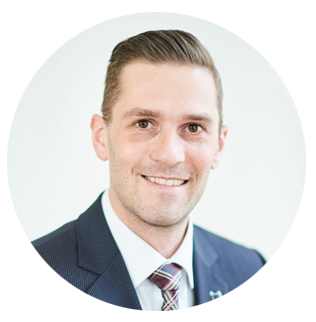
 Describe a typical day at your job
Describe a typical day at your jobThe everyday work revolves around administrative processes for the placement of ESA contracts. This means preparing requests for offers/invitations to tender; participating in the evaluation of offers and tender; negotiating the resulting contracts; and dealing with administrative, contractual, legal, and industrial problems arising from the procurements concerned, involving regular and direct interaction with industry. It means spending a lot of time in front of computer screens.
Contract Officers in ESA need to understand and work on a multitude of aspects and topics beyond the pure procurement side to ESA tendering processes and contractual practices, including financial, legal, and technical aspects. I enjoy the specificity of implementing ESA procurement rules whilst addressing this wide variety of topics within the multidisciplinary role of an ESA contracts officer. Whilst this may not be ‘rocket science cool’, I care about contributing to the work of the engineers or scientists. Being able to be part of European space efforts is more than cool enough for me.
All jobs do. The number one dislike for me related to work is in fact the Paris region commute. This is now partially mitigated by the institutionalization of telework. Administration is often the natural reply for this type of question for many jobs; then again, the job of a contracts officer is all about administration and when are you a good at this stuff, it is nothing to be ashamed of. What matters is that the administration is done efficiently and effectively.
I applied for a vacancy note during my second YGT year in ESA HQ Paris.
The multidisciplinary side of my job as contracts officer is reflected in my study path. After a classic programme with a focus on Latin and modern languages in high school, I chose to study Modern History at the University of Leuven. During these studies I opted to broaden my horizons pursuing a bachelor’s in law, which would also help me during my master’s in Modern History, as I was doing a dissertation on jurisdiction, corruption, and abuse of power of legal officers in the early modern age in Flanders. Exposure to European and International Law led me to take up a master’s in European Studies, where I wrote a dissertation in 2009 on the consequences of the Lisbon Treaty for the European Space Policy and Programme. This on its turn was a steppingstone to take up the advanced master’s in Space Studies. I finished the master’s with a dissertation on the sustainable use of outer space in 2010. That moment I went all-in for a career in the space sector, and I was fortunate enough that this choice paid off.
Communication and a sense of (self)-reflection. For this job, as for many others, the better you can work alongside and with your colleagues through open and constructive communication, the more effective and efficient you can be, also contributing to a positive working atmosphere. Thinking about your own performance and the role of your job in the bigger picture helps putting your job and role in perspective. As a contracts officer you are helping ESA programmes and your colleagues to achieve their objectives. These and many other behavioural skills you develop through experience so the sooner you start to consider these skills consciously, the better off you will be in the future.
It is important to be interested in the subject(s) and overall enjoy learning about it and appreciate intellectual challenges. So, on the one hand you need to find out what you really love doing, but not just that. Try to find out what you do well. Doing internships early on during your studies, can always be useful in that regard and may present with opportunities later down the road. I have personally benefitted from starting my studies with a more generic programme and gradually refining my specialisation. Ideally you get to combine in your career what you love to do and what you do well. For most, there is no such thing as a perfect job, but you can find a job/career where you get a sense of purpose and contribution.